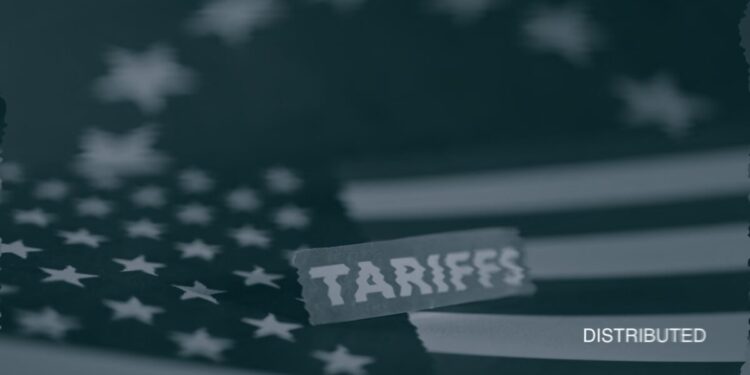Top ECB officials are urging the European Union to break down its own internal barriers as a way to protect the economy from the impact of U.S. tariffs and growing global deglobalisation trends. According to new comments from senior policymakers on Friday, the EU has the power to offset the economic drag caused by rising trade tensions if it simplifies and unifies its rules across member states.
The warning comes as Europe continues to fall behind major global competitors. Economists point to weak competitiveness across the bloc, structural problems that slow down growth, and a maze of regulations that differ widely across its 27 countries. These internal challenges, officials argue, are doing more damage than any foreign policy shock.
Christine Lagarde, President of the European Central Bank, highlighted new analysis showing that reducing internal barriers could significantly strengthen the EU’s economy. She explained that if all EU countries lowered their regulatory barriers to match the openness of the Netherlands, internal barriers for goods would drop by about eight percentage points and for services by nine percentage points. Even achieving only a quarter of that improvement, she said, would be enough to fully counter the growth impact of U.S. tariffs.
The Netherlands is considered one of the bloc’s most open and efficient economies, making it a benchmark for others to follow. Lagarde’s recommendations also echo earlier proposals by former ECB President and former Italian Prime Minister Mario Draghi, who last year outlined reforms aimed at making Europe more competitive. Many of those ideas were pushed aside by policymakers at the time.
Another key concern raised at the event came from Bundesbank President Joachim Nagel. He argued that Europe’s internal barriers prevent many of its strong, well-established firms, often referred to as hidden champions, from becoming global players in the same way their U.S. competitors do. He said many European firms are stuck in a difficult middle ground: not small enough to innovate quickly, but not large enough to take advantage of economies of scale.
Both Lagarde and Nagel urged the EU to introduce what they call a 28th regime. This would be an optional legal framework that companies across the EU could choose to operate under. It would be uniform, simpler, and would sit above the individual rules of each member state. The goal is to make cross-border business easier, reduce compliance costs, and help companies grow faster in the single market of 450 million people.
See Related: President Of European Central Bank Believes Crypto Is ‘Worth Nothing’
Opportunities For European Businesses
Nagel noted that such a regime would remove many remaining internal barriers and unlock new opportunities for European businesses. It could also help keep European savings within the continent. At present, eurozone households hold around 6.5 trillion euros in U.S. stocks, roughly double what they held in 2015, as they look for better returns outside Europe.
Lagarde added that if the EU gets these reforms right, firms operating under a common European framework would be in a strong position to access pan-European financing. This would help direct Europe’s vast savings into productive investments within the region instead of sending money abroad.
She also suggested simplifying Europe’s tax system by harmonising value-added taxes and expanding the use of qualified majority voting so that individual countries would have fewer opportunities to veto key decisions, a problem that often slows down EU-wide reforms.
Lagarde further praised recent fiscal spending in countries like Germany for helping stabilize the economy during a difficult period. She emphasized that the ECB, which has sharply cut interest rates in 2024 and 2025, remains committed to supporting price stability. She noted that the central bank will continue to adjust its policy to ensure inflation stays at target.
In the end, the message from Europe’s top central bankers is clear, the EU has the tools to strengthen its economy from within. By removing internal barriers and simplifying how business is done across the bloc, it could not only protect itself from external shocks like U.S. tariffs but also become far more competitive on the global stage.



